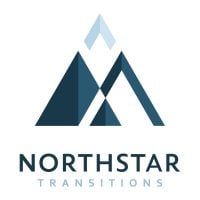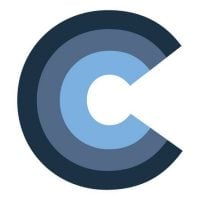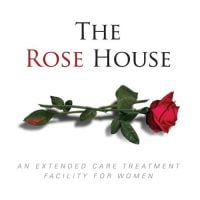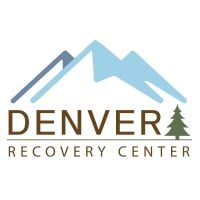Mental Health Partners - Child and Family Counseling Services
Drug Rehab Center in Boulder, Colorado
- Mental Health
- Dual Diagnosis
Mental Health Partners in Boulder, Colorado offers a range of counseling services for mental health and dual diagnosis issues, accepts private health insurance, provides resources for families and friends, and offers education and awareness to the public.
About This Colorado Facility
Mental Health Partners provides comprehensive services to individuals and families in the Boulder, Colorado area by offering counseling services to address various mental health and dual diagnosis issues. The clinic offers a range of treatments, including cognitive-behavioral treatment, dialectical-behavioral therapy, family therapy, group therapy, trauma therapy, couples therapy, and individual therapy.
Mental Health Partners accepts private health insurance for clients seeking help. They understand the importance of having access to quality care, and this is reflected in their commitment to offering individualized services for each person. Mental Health Partners also provides resources for family members and friends of those in need of care, as well as support groups and community-based resources. In addition, the staff provides education and awareness to the public on mental health topics and the dual diagnosis treatment program.
Genders
Ages
Modality
Additional
Conditions and Issues Treated
When addiction and psychiatric issues co-occur, the addict’s recovery is more successful when both conditions are treated. A dual diagnosis refers to a condition in which the patient is diagnosed with two health issues: addiction and bipolar disorder. The most common therapies are psychotherapy, behavioral therapy, spiritual counseling, 12-step programs, and medication management.
Levels of Care Offered at Mental Health Partners - Child and Family Counseling Services
This center offers a variety of custom treatment tailored to individual recovery. Currently available are Dual-Diagnosis, Outpatient, with additional therapies available as listed below.
An outpatient treatment program is set up to help with alcohol or drug addiction or a co-occurring disorder. The patient must attend the facility for their therapy and other programs but can return home each night.
The frequency of mandatory attendance decreases after much of Mental Health Partners - Child and Family Counseling Services‘s program is complete.
Outpatient treatment is a recovery approach that allows recovering addicts to live at home while getting rehab for addiction
An outpatient can include day treatments which include attending group sessions one hour per week. A person living in an outpatient environment may be allowed the opportunity to work full time if they choose to and continue studies without interruption from drugs/alcohol.
Outpatient treatment is an option for people who want to maintain their careers and families. Outpatients live at home but attend treatment such as individual counseling, group counseling, or twelve-step meetings during the day.
Therapies & Programs
At Mental Health Partners - Child and Family Counseling Services , to learn from past mistakes and improve one’s situation, the recovering person meets individually with a therapist. The counselor or therapist will address addiction causes, triggers, mental issues, dual diagnosis, and aftercare plans during this time. This is a very intense and challenging process. Some clients find it easier to open up to someone other than family or friends who understand their struggles with addiction.
Couples therapy sessions are typically used to help couples in recovery from drug addiction work through their issues. These types of sessions can be beneficial for many reasons, including the fact that they add a layer of accountability when both partners in a couple are recovering from addiction.
Therapy can also provide addicts with another effective way to cope with stress and avoid relapse during difficult situations. This type of therapy can help improve communication with their partners, which can strengthen the relationship and prevent future problems that might lead to relapse.
Family therapy is a crucial part of drug treatment and getting sober. It is one of the most effective ways to help addicts stay on the path to long-term sobriety. An addict’s family can play a vital part in helping them to avoid relapse. They can spot the warning signs and help them get back on track.
In group therapy, recovering addicts meet with a therapist and other people in recovery. Some groups are closed, meaning only people who share the same addiction or problem can attend. Others are open to anyone who wants to stop using drugs or drinking alcohol. Group therapy sessions typically focus on one topic each week or month so that recovering addicts can discuss issues they face daily.
Trauma therapy allows people to face and learn from past traumas.
Many people suffer childhood traumas that lead to adult addiction. During treatment at Mental Health Partners - Child and Family Counseling Services [/type], you can move forward in your recovery and reclaim your sober future! Trauma is a common cause of psychological disorders like Addiction Disorder. It’s common in Addictive Disorders patients because traumatized people have strong emotions or thoughts that lead to addictive behaviors.
Dialectical Behavior Therapy (DBT) is a type of therapy created in the late 1980s and early 1990s. It was designed to help people with high rates of suicidal behavior.
The goal of DBT is to teach mindfulness, distress tolerance, emotion regulation, and interpersonal effectiveness to help people learn how to live a life that is no longer controlled by overwhelming emotions and urges.
DBT is beneficial in treating drug addiction because it helps patients understand and cope with their cravings for drugs or alcohol rather than turning to those substances as a way of coping.
Cognitive Behavioral Therapy (CBT) is based on the idea that how we feel, think and act all interact together. It helps people explore their thoughts for problems (or false beliefs) that influence their mood and actions. CBT is very goal-oriented, which means that the therapist and patient work together on a specific problem. In addition to helping a client focus on thoughts that can be changed, CBT also allows them to take an active role in their treatment. Our thoughts determine our feelings and behaviors; our feelings affect our thoughts, and our behaviors change our thoughts and feelings.
Payment Options Accepted
For specific insurance or payment methods please contact us.
Is your insurance accepted?
Ask an expert, call (888) 674-0062
Additional Details
Specifics, location, and helpful extra information.
Boulder, Colorado 80304 Phone Number(303) 443-8500 Meta DetailsUpdated November 25, 2023
Staff Verified
Patient Reviews
There are no reviews yet. Be the first one to write one.
Boulder, Colorado Addiction Information
The Centennial State has slipped to a ranking of 12th in the country for drug abuse. Each year around 24% of the state's population uses illegal drugs while nearly 5% of its population abuses alcohol. Substance-related deaths in Colorado were responsible for 15.12% between 2008 and 2017. Fortunately, Colorado drug and alcohol addiction treatment are available to help a person overcome addiction.
The drug addiction problem in Boulder, CO, is unfortunately quite severe. According to recent statistics, over 11,000 people in the city are addicted to drugs or alcohol. In Boulder County, opioids were involved in more than 60 percent of overdose deaths between 2009 and 2016. Boulder, CO, offers a variety of drug treatment options to meet the needs of all individuals struggling with addiction.
Treatment in Nearby Cities
- Yuma, CO (135.3 mi.)
- Fairplay, CO (68.1 mi.)
- Arvada, CO (19.2 mi.)
- Cascade, CO (80.6 mi.)
- Idaho Springs, CO (23.8 mi.)
Centers near Mental Health Partners - Child and Family Counseling Services



The facility name, logo and brand are the property and registered trademarks of Mental Health Partners - Child and Family Counseling Services, and are being used for identification and informational purposes only. Use of these names, logos and brands shall not imply endorsement. RehabNow.org is not affiliated with or sponsored by Mental Health Partners - Child and Family Counseling Services.





